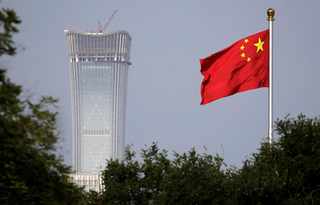During a recent visit to Australia, I was treated to Barrie Kosky's audacious staging of The Magic Flute. I had hoped that it could offer me a break from writing, speaking, and thinking about contemporary China—my principal occupation, these days—but something odd happened. As Mozart's opera unfolded, the libretto summoned me back to China. This was no surprise, on reflection. The Magic Flute is about the Enlightenment, its promises and underlying violence. For Europeans, the dialectic of Enlightenment—what the Frankfurt School described as a process through which instrumental reason comes to dominate other forms of thought, and the human spirit itself becomes a kind of product—is by now a distant memory. In China, it is a vividly contemporary phenomenon.
The Magic Flute contains considerable violence; at first, both the protagonist Tamino and the audience are led to blame it on depraved passion. Slowly, however, we come to realize that things are more complicated—and that the violence flows directly from the moral commandment to obey reason rather than passion. “Yes, the Temple of Wisdom is in his charge, too.”
Read Full Article »



